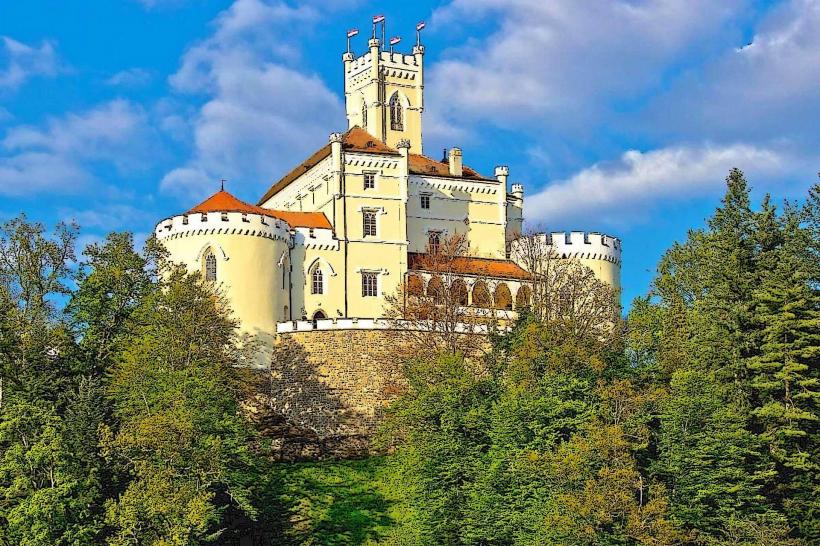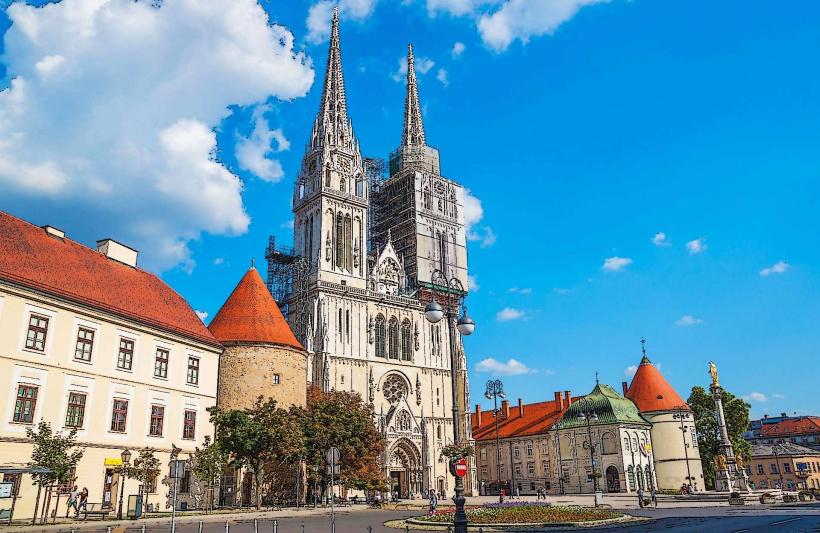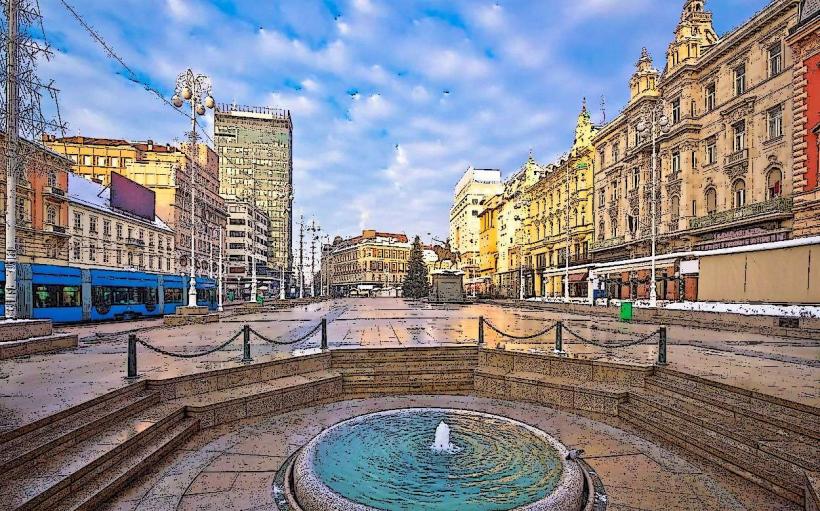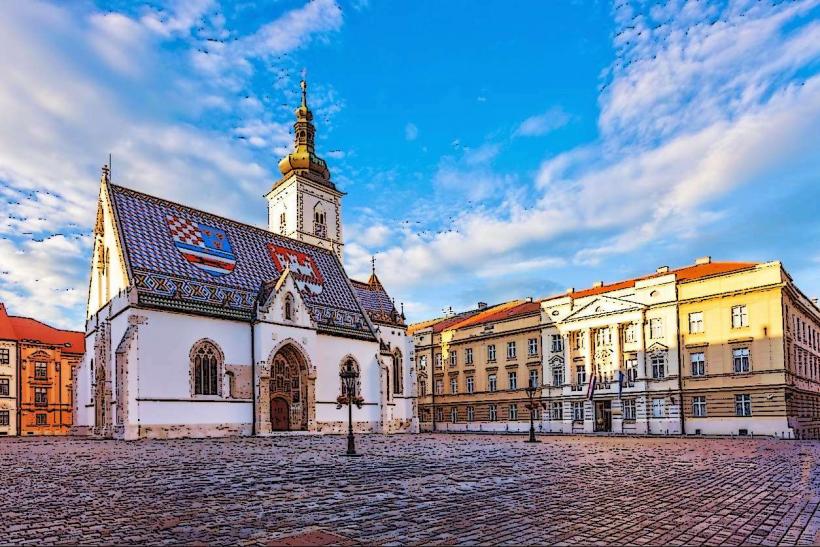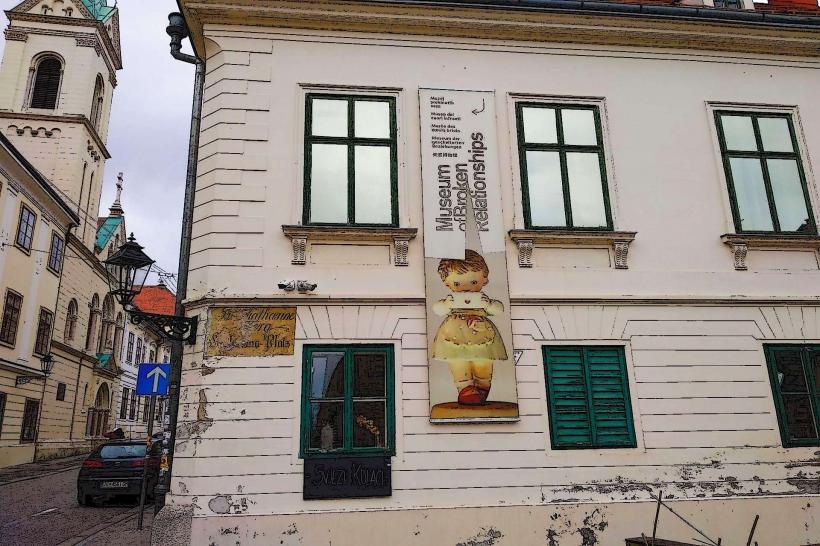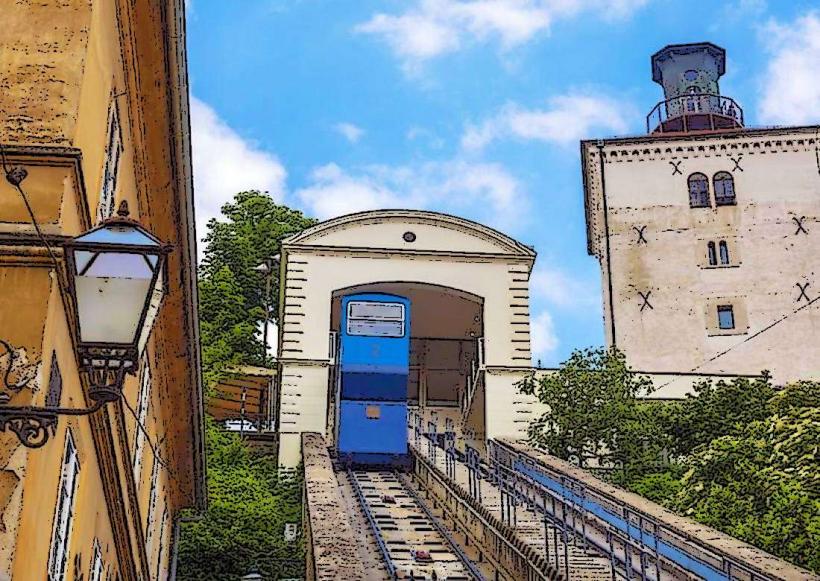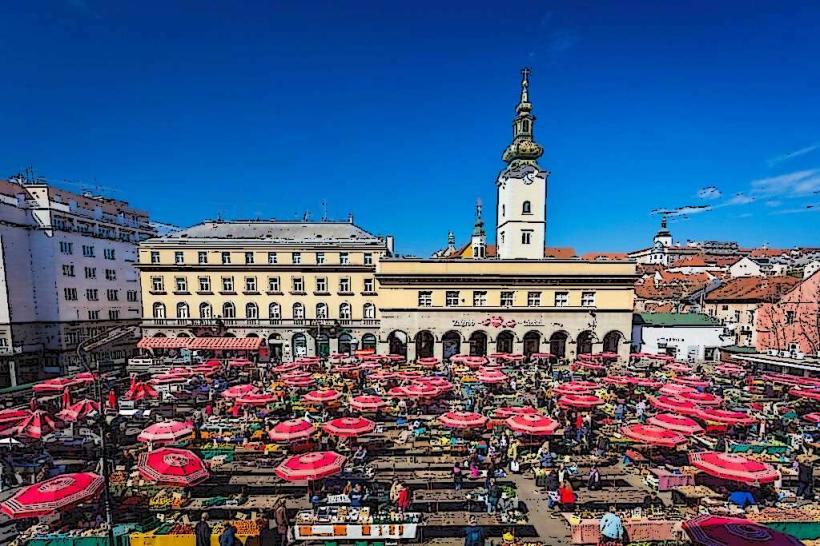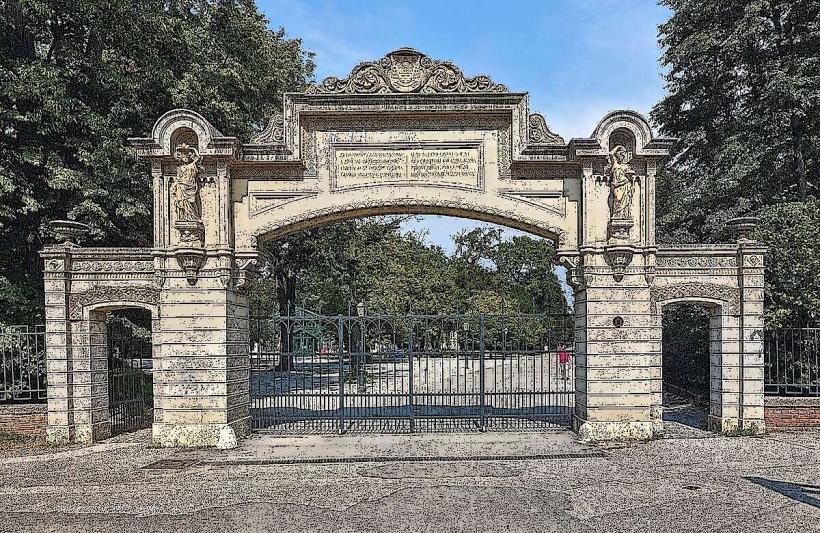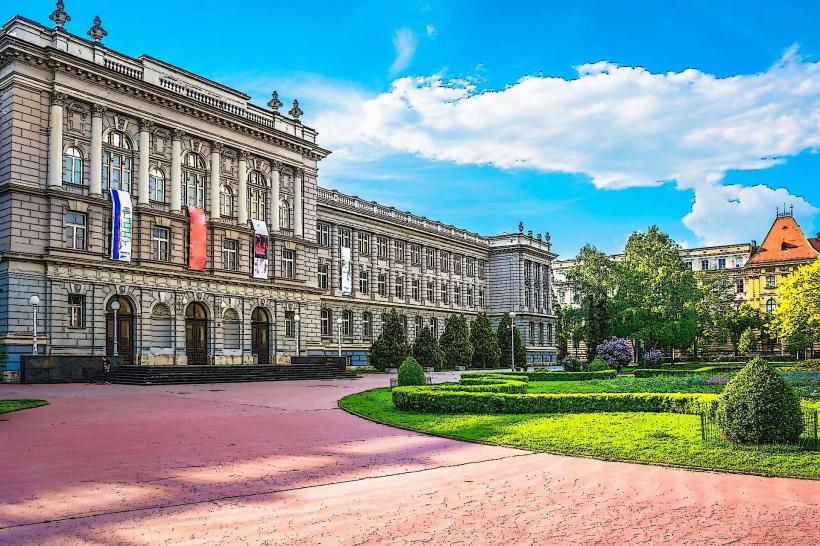Information
Landmark: Art PavilionCity: Zagreb
Country: Croatia
Continent: Europe
Art Pavilion, Zagreb, Croatia, Europe
The Art Pavilion (Umjetnički paviljon) is a dedicated contemporary art exhibition hall located in the Lenuci Horseshoe of the Lower Town in Zagreb, Croatia. It stands as the oldest gallery in Southeast Europe specifically designed to accommodate large-scale solo and group art exhibitions.
Visual Characteristics
The building is a prominent example of Academic Historicism, featuring a bright yellow ochre facade and a large glass dome topped with a golden finial. The structure is characterized by classical architectural elements, including columns, pediments, and busts of historical masters such as Michelangelo and Raphael on the exterior walls. The interior features a central rotunda with decorative plasterwork and marble flooring, designed to maximize natural light through the dome.
Location & Access Logistics
The pavilion is situated at Trg Kralja Tomislava 22, directly across from the Main Railway Station (Glavni kolodvor). It is accessible via ZET tram lines 2, 4, 6, 9, and 13, which stop at the "Glavni kolodvor" station. Pedestrians can reach the site via a 10-minute walk south from Ban Jelačić Square through the Zrinjevac and Strossmayer parks. Paid street parking (Zone 1) is available on surrounding streets, and the nearest underground garage is located at Importanne Center, 200 meters to the south.
Historical & Ecological Origin
The pavilion was originally constructed as a temporary iron structure for the 1896 Millennium Exhibition in Budapest. Following the exhibition, the iron skeleton was transported to Zagreb and encased in a permanent masonry shell designed by Viennese architects Fellner & Helmer, with local architects Honigsberg & Deutsch overseeing construction. It officially opened in 1898 as the first purpose-built art gallery in the city.
Key Highlights & Activities
The gallery operates as a "kunsthalle," meaning it does not house a permanent collection but hosts rotating exhibitions of international and domestic artists. Visitors can attend lectures and workshops related to current displays. The surrounding King Tomislav Square provides expansive manicured lawns and seasonal flower beds for public recreation.
Infrastructure & Amenities
Public restrooms are available inside for ticket holders. The building features a ramp at the northern entrance, providing full wheelchair accessibility to the ground floor. 5G and 4G cell signals are strong throughout the Tomislavov square area. Shade is available under the mature trees of the surrounding park, and various food vendors and cafes are located in the adjacent streets and the Importanne shopping mall.
Best Time to Visit
The exterior is best photographed in the late afternoon when the setting sun emphasizes the yellow facade and golden dome. May and June provide the most favorable weather for enjoying the surrounding park, while the winter months often feature an outdoor ice skating rink in the square. The gallery is typically closed on Mondays and public holidays.
Facts & Legends
The Art Pavilion is a rare example of a "pre-fabricated" building from the 19th century, as its iron frame allowed for its rapid dismantling in Budapest and reassembly in Zagreb. A local urban legend suggests that the specific shade of yellow used on the facade was chosen to match the preferred color of the Habsburg monarchy, a common trait in Austro-Hungarian administrative buildings.
Nearby Landmarks
Zagreb Main Railway Station: 0.1km South
Strossmayer Gallery of Old Masters: 0.3km North
King Tomislav Square: 0.05km South
Zrinjevac Park: 0.4km North
Esplanade Zagreb Hotel: 0.2km West

